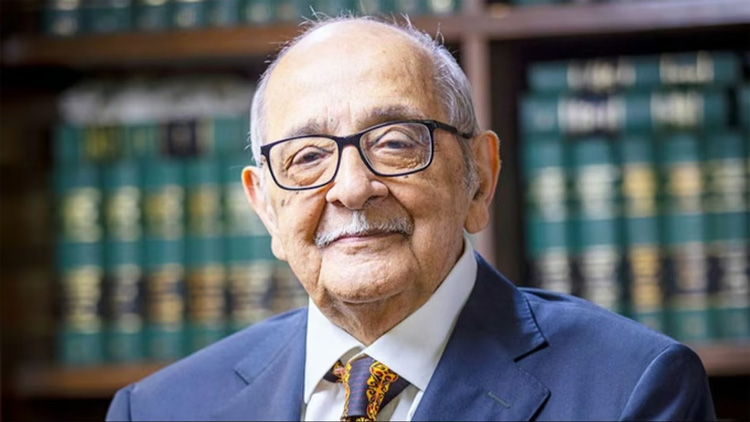Renowned jurist Fali S Nariman passes away at the age of 95
Renowned constitutional jurist and senior Supreme Court advocate Fali S Nariman passed away at the age of 95 in New Delhi on Wednesday.
In November 1950, Nariman became an advocate of the Bombay High Court, later earning the designation of senior advocate in 1961. With over 70 years of legal practice, he initially worked in the High Court of Bombay before shifting to New Delhi in 1972 to practice in the Supreme Court of India. Additionally, he served as Additional Solicitor General of India from May 1972 onwards, following his move from Bombay to Delhi.
The veteran lawyer was also the President of the Bar Association of India from 1991 to 2010.
Nariman received the Padma Bhushan in January 1991 and in 2007 he was awarded the Padma Vibhushan.
The veteran argued numerous significant cases, such as the NJAC verdict and the SC AoR Association case, which influenced the establishment of the collegium system. He also participated in cases like the TMA Pai case, addressing the extent of minority rights under Article 30. Notably, in June 1975, Nariman resigned as the Additional Solicitor General of India in opposition to the declaration of emergency by the Indira Gandhi government.
He served as the President of the International Council for Commercial Arbitration from 1994; the Vice-Chairman of the Internal Court of Arbitration of the International Chamber of Commerce from 1989; and also the Chairman of the Executive Committee of the International Commission of Jurists in Geneva from 1995 to 1997; among several other prominent posts.
Nariman was a significant public voice in the country. Recently, he raised criticism against the judgement leading to the abrogation of Article 370.
In 2022, Nariman in his book, ‘You Must Know Your Constitution’, wrote, “The life of a written Constitution—like the life of the law—is not logic (or draftsmanship), but experience. Seventy-odd years of experience on this subcontinent has shown that it is easier to frame a Constitution than to work it….We will never be able to piece together a new Constitution in the present day and age simply because innovative ideas however brilliant and howsoever encouragingly expressed in consultation papers and reports of commissions, can never give us an ideal Constitution.”
He also spoke to HT, about the sedition law saying, “I am simply alarmed (and dismayed) by sedition remaining a part of the new law since it was always an oppressive colonial law that demanded not just mere obedience from the citizens to the orders of a foreign government but also insisted on citizens having an ‘affection’ for it. So when Gandhi ji was charged with sedition (as I have related in the book), he readily agreed and pleaded guilty to the charge since he had no ‘affection’ at all for the Government!”

